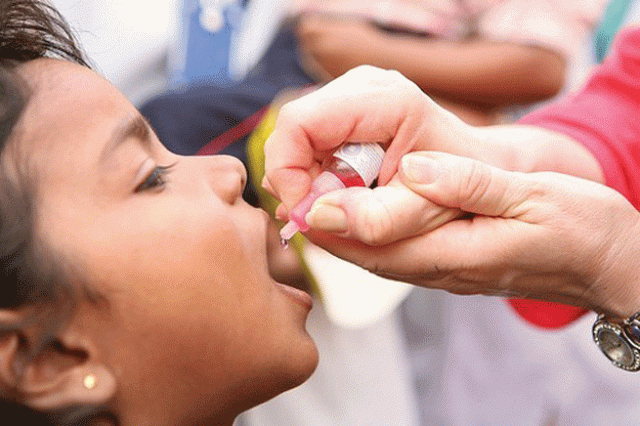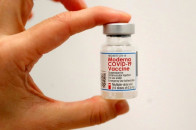Polio-free Africa? Mali sees first case in four years
Preliminary tests showed that a 19-month-old was paralysed on July 20, seven days before being brought to Mali

The case, caused by a strain of the virus known as type 2 that had come from a vaccine. PHOTO: REUTERS
The case, caused by a strain of the virus known as type 2 that had come from a vaccine, is the second setback in a week for global efforts to eradicate polio. Two cases were reported in Ukraine last week.
Preliminary tests showed that a 19-month-old was paralysed on July 20, seven days before being brought to Mali for treatment. The strain is the same as one found in Siguiri in Guinea's Kankan region in August 2014.
Read: Ukraine reports polio outbreak, first cases in Europe since 2010: WHO
"The risk of spread is considered to be high in both countries due to low rates of vaccination coverage in both Mali and Guinea," WHO spokesperson Cory Couillard said in a comment to Reuters.
"Both countries are taking coordinated emergency response measures to bring the outbreak to an end quickly."
Vaccine-derived polio infectionare caused when the virus spreads after being excreted by people who have been immunised with live oral polio vaccine. Unvaccinated children and people with low immunity are then at high risk of becoming infected via contaminated water and sewage. Vaccine-derived polio virus (VDVP) outbreaks are rare, but pose more of a risk in populations where health systems are fragile and immunisation coverage is low.
WHO figures show Guinea's polio vaccination coverage fell from 63 per cent to 42 per cent in 2014, as the Ebola outbreak caused chaos and overwhelmed an already weak national health system.
In Mali, by contrast, polio vaccination coverage rose to 84 per cent in 2014, from 72-77 per cent in preceding years.
Read: Pakistan: the last bastion of the polio virus
There is no cure for polio, which attacks the nervous system and can cause irreversible paralysis within hours of infection.
A global vaccination campaign has largely stamped out the virus, and only Pakistan and Afghanistan have reported cases of wild polio virus this year.
As the world has moved closer to its goal of eradicating polio, specialists warn such vaccine-derived cases could jeopardise the progress. Writing in the Public Library of Science Pathogens journal in August, researchers led by Javier Martin of Britain's National Institute of Biological Standards and Control said VDPV represents "a real risk of polio re-emergence in the post-eradication era".
One way of combating that risk is to switch from using live oral polio vaccines (OPV) - which are highly effective, cheap, easy to deliver but contain live virus strains – to "inactivated" vaccines (IPV), which carry no live virus.
Unlike OPV, however, IPV is expensive and difficult to deliver because it has to be injected by trained health workers in clinics. While most wealthy countries used OPV to stop wild polio transmission then switched to IPV when they were sure they had the virus beaten, that is not easy in poor countries with limited health services, infrastructure and resources.



















COMMENTS
Comments are moderated and generally will be posted if they are on-topic and not abusive.
For more information, please see our Comments FAQ